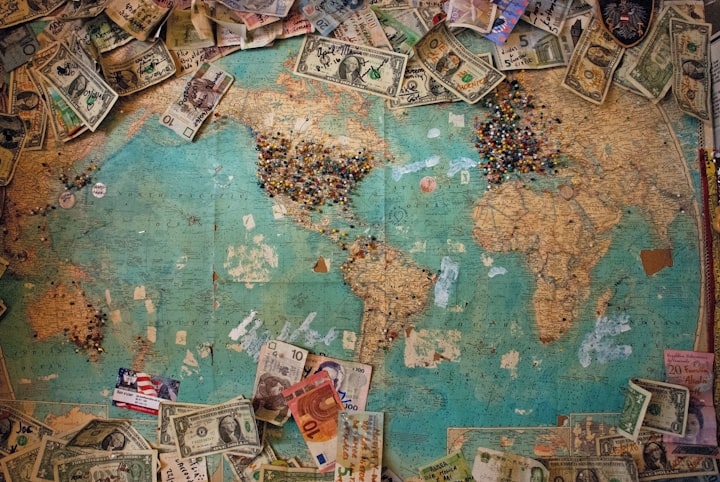The Great Reset: How COVID-19 Redefined Global Finance
Understanding the Long-Term Economic and Financial Consequences of COVID-19 on Global Finance.

The COVID-19 pandemic has emerged as a cataclysmic event that redefined the global financial landscape. As the virus spread rapidly across borders, it brought economies to a grinding halt, creating unprecedented challenges for governments, central banks, businesses, and individuals alike.
This article delves into the profound effects of the pandemic on the global financial system, analyzing the immediate responses of governments and central banks, exploring the long-term economic and financial consequences, and examining the changes in consumer behavior and spending patterns that have emerged as a result.
Immediate Responses of Governments and Central Banks
When the World Health Organization declared COVID-19 a pandemic in early 2020, countries worldwide scrambled to implement measures to contain the virus's spread. The immediate impact on the global economy was severe, with widespread shutdowns of businesses, travel restrictions, and disruptions to supply chains. Governments swiftly responded by injecting unprecedented fiscal stimulus packages to support struggling industries, protect jobs, and provide financial aid to individuals affected by the economic fallout.
Central banks also stepped in to stabilize financial markets and prevent a complete collapse. Many countries slashed interest rates to historic lows and engaged in quantitative easing to provide liquidity to the banking system. In an effort to boost consumer spending, some central banks even adopted negative interest rates, encouraging borrowing and discouraging saving.
The Rise of Digital Finance and E-Commerce
One of the most significant changes brought about by the pandemic was the accelerated shift towards digital finance and e-commerce. With physical transactions hindered by lockdowns and safety concerns, consumers turned to online platforms for their daily needs. This surge in digital payments, online shopping, and contactless transactions transformed the way businesses operated and reshaped consumer behavior.
E-commerce giants like Amazon, Alibaba, and other digital marketplaces experienced exponential growth, forcing brick-and-mortar retailers to adapt or face closure. This digital transformation extended to the insurance sector, health care sector, financial services, and beyond with a rise in demand for digital banking, contactless payments, and mobile wallets. As a result, fintech companies gained prominence, offering innovative solutions that catered to the evolving financial needs of consumers.
Long-Term Economic and Financial Consequences
While the immediate responses of governments and central banks provided much-needed relief, the long-term consequences of the pandemic on global finance have been far-reaching. The massive fiscal stimulus and monetary easing measures led to ballooning government debt and raised concerns about the sustainability of public finances. Many countries faced the challenge of balancing economic recovery with the need for fiscal discipline.
Furthermore, the pandemic exposed the vulnerabilities in global supply chains, prompting calls for greater regional self-sufficiency and diversification. Businesses began to reassess their reliance on foreign suppliers, seeking to reduce risk exposure and enhance resilience. This shift could lead to changes in trade dynamics and the reconfiguration of global supply chains.
Inequality and Social Implications
The pandemic exacerbated existing economic disparities, with vulnerable populations hit hardest by the economic downturn. Low-income workers in sectors like hospitality, retail, and tourism faced significant job losses, while technology and knowledge-based industries were better equipped to weather the storm. This disparity in impact brought issues of income inequality and social justice to the forefront of public discourse.
Governments and international organizations faced mounting pressure to address these disparities and ensure a more inclusive recovery. Policies to support social safety nets, enhance access to education, and provide targeted support for marginalized communities gained traction as part of the post-pandemic recovery efforts.
Changing Consumer Behavior and Spending Patterns
As the pandemic unfolded, consumer behavior underwent a seismic shift. Lockdowns and social distancing measures led to increased savings, as people curtailed discretionary spending and focused on essentials. This shift in consumption patterns could have long-term implications for businesses and industries, as they adapt to changing demands.
Eating habits, travel preferences, and leisure activities all experienced shifts as consumers prioritized health, safety, and convenience. Online entertainment, home fitness, and remote work technologies became essential components of the new normal, fostering opportunities for businesses catering to these evolving needs.
The COVID-19 pandemic has undoubtedly redefined the global financial landscape. Governments and central banks acted swiftly to provide immediate relief and stabilize markets, while businesses and consumers adapted to a new era of digital finance and e-commerce. However, the long-term consequences remain complex, with ongoing challenges surrounding public finances, supply chain resilience, and social inequality.
As the world navigates its way through the recovery phase, it is evident that the pandemic's impact on global finance will continue to shape economic policies, business strategies, and consumer behavior for years to come. Building a more sustainable, inclusive, and resilient financial system will be crucial in preparing for any future crises that may lie ahead.
About the Creator
Janet J. Smith
I love playing the guitar in the woods, under the dreamyness of the moon. Ohh, and I'm also a finance consultant by day. :-)






Comments
There are no comments for this story
Be the first to respond and start the conversation.